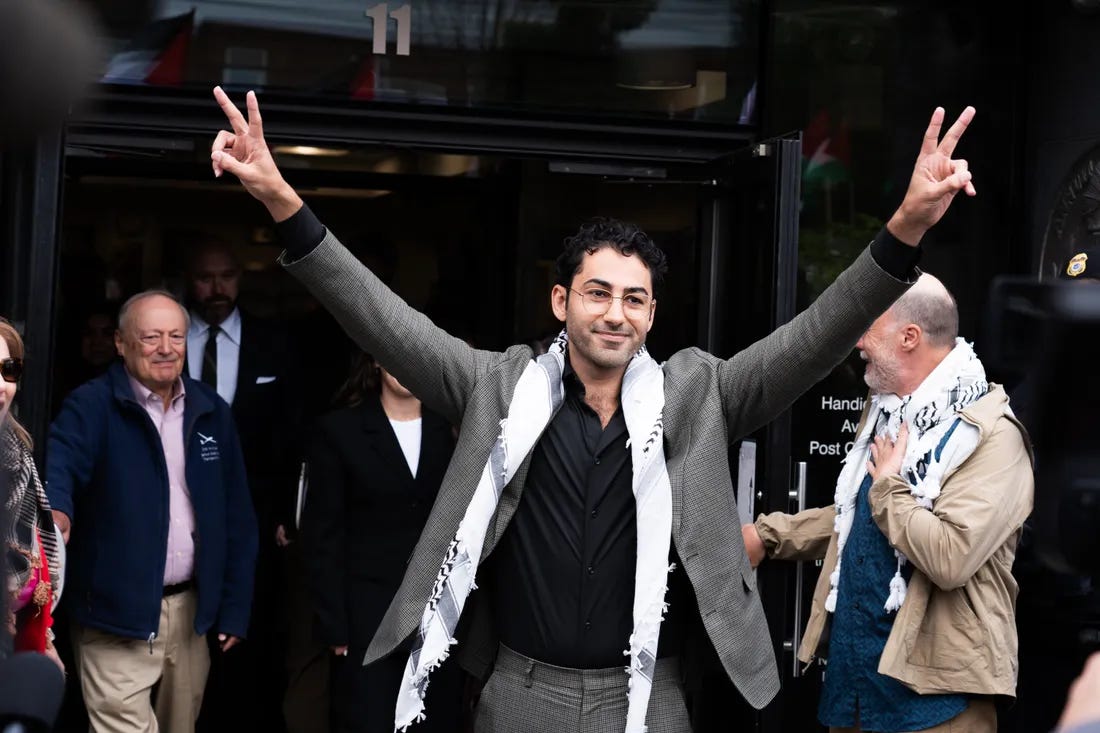We assume we know what “courage” looks like — that we will always accord it the esteem it is owed. Cowardice, we assume, is just as easy to spot. But in recent history, alertness to courage, and admiration for its achievement, is in little evidence. Likewise disdain for cowardice. It is far more frequent, I find, that courage is greeted as recklessness, and cowardice as prudence. It’s easy to understand why. Cowardice earns its place of honor by relieving us of the obligation to be courageous. For this, we are grateful. And we show our gratitude in rituals of tendentious excuse-making. Betrayals of principle, self-protective maneuvers, toadying to power — these are greeted with relief, a release of tension. Not so, courage. Courage always increases the tempo. Courage discomforts, inspires a volatile mix of urgency and shame. Because courage always accuses the cowardly, and many of us are cowards.
I wrote my NY Magazine column this month about the importance of courage, and some people who are modeling it despite the odds. It begins:
On the last day of April, a federal judge ordered the release of Mohsen Mahdawi, a senior at Columbia University, from Immigration custody in Vermont. Mahdawi, a legal permanent resident for ten years, had been arrested during a citizenship interview on April 14 and spent more than two weeks in Northwest State Correctional Facility in St. Albans. Born in a refugee camp in the West Bank, Mahdawi participated in protests against Israel’s brutal war in Gaza last year; as with fellow Columbia student Mahmoud Khalil, the government is seeking to deport him on grounds that he poses a national-security threat. Outside the courthouse, Mahdawi, who appeared poised with impeccable hair, wire-rimmed glasses, and a keffiyeh, addressed a gathered crowd: “I am saying it clear and loud to President Trump and his Cabinet: I am not afraid of you.”
I’ll admit, watching the video, my heart leaped. Mahdawi, one of the principal targets of Trump’s campaign of retribution and ostentatious use of executive power, could have been forgiven for relishing his safety and leaving the scene. Instead, he’d resisted the seductions of self-preservation with open defiance.
It can be difficult to write in an abstract register about big concepts like “courage” and “cowardice.” One risks cliché. In our culture, we are beaten over the head by bloated, fatuous appeals to high principles, which almost no one, especially their loudest champions, care to uphold or understand. But sometimes, the old political virtues must be rescued from their dishonest and weak-willed invokers. And I set myself the challenge of reanimating the deadened and deadening cliche of “courage” for this piece.
In looking for sources to fire the imagination about the power and difficulty of courage, I came across this quote from Pope Francis (RIP):
“Openness to God makes us open towards the marginalized of this world, and gives us the courage to leave the confines of our own security and comfort to become bruised, hurting and dirty as we joyfully approach the suffering other in a spirit of solidarity.”
I’m no Catholic, but Francis was right about this: our coarseness and revulsion in the face of suffering is a product of our terror of becoming bruised, hurting, and dirty ourselves. To be courageous in our solidarity for the poor, the migrant, the dissident, we must be willing to risk our own security and comfort; we must face what is fragile and vulnerable in ourselves. I hope you’ll read the piece and share it around.
Some other updates:
More Pope content: Matt and I recorded an episode of Know Your Enemy about Francis and his legacy. Summary: Pretty good pope! I’ll miss him!
I appeared on the great Ordinary Unhappiness podcast — hosted by my dear friends Pat Blanchfield and Abby Kluchin — to talk about incest and family annihilation in season 3 of White Lotus. It was FUN.
Last week, Matt and I were at University Chicago talking about American conservatism and podcasting. We were interviewed by Reid Cherlin of Crooked Media. It went well. I used the word Bukkake. There’s video here.



